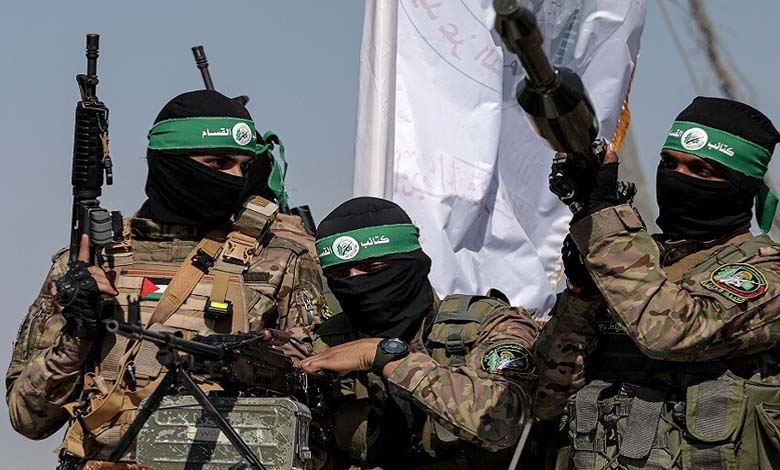Hamas’ Intransigence vs. Washington’s Optimism: U.S. Official Weighs Gaza Deal Prospects

When tragedies intensify in a troubled region, every serious humanitarian initiative becomes a fragile lifeline to which all parties cling. Such is the case today in Gaza.
In this context, Adam Boehler, the U.S. envoy for hostage affairs, revealed that a deal with Hamas is “imminent and closer than ever.
-
Hostages Before Hamas… A Shift in Priorities or Prelude to the End of the Gaza War?
-
Brotherhood Figure Turns Against Hamas: October 7 Attack Was a Catastrophic Mistake
Speaking at the Aspen Security Forum, Boehler stated that “Israel’s military successes against Iran present a political opportunity that could pave the way for an agreement to free dozens of hostages still held by Hamas.” He expressed confidence that such a deal is within reach.
However, Boehler described Hamas as “extremely stubborn” and pointed to several obstacles impeding direct negotiations with the group.
-
Disarming Hamas in Exchange for Political Participation: A New Gaza Ceasefire Proposal
-
Hamas Opens the Door to Exiting Power: A Tactical Move or Surrender?
“They (Hamas) continue to refuse to make concessions, even as Israel keeps crushing them militarily. They still believe they have leverage,” he said, adding that any deal failure would be due to this obstinacy.
When asked whether the Biden administration should have engaged in direct talks with Hamas earlier in the conflict, Boehler declined to comment.
-
Hamas to Release American Hostage After Direct Talks with Washington
-
March Missiles… Hamas Breaks the Heavy Silence with Weak Justifications
He also rejected suggestions that the United States had struck any “unilateral deals” with Hamas, stating: “We have always worked alongside the Israelis.”
Earlier this year, Boehler faced criticism from Israeli government supporters for bypassing official channels and negotiating directly with Hamas to secure the release of Idan Alexander, a dual Israeli-American citizen held hostage during the October 7, 2023 attacks.
-
Survey Reveals Scale of Discontent and Anger Towards Hamas in Gaza
-
Can Gaza Overcome Hamas’s Heavy Legacy and the Long Shadow of Occupation?
New Ceasefire Proposal
Boehler’s statements coincided with a report by Axios, which cited two sources saying that Qatar, Egypt, and the U.S. had submitted a revised ceasefire proposal to both Israel and Hamas.
According to Axios, the two main updates in the proposal concern the extent of Israel’s military withdrawal from Gaza during the truce, and the ratio of Palestinian prisoners to be released in exchange for each Israeli hostage.
-
48 Hours… Hamas Sets Deadline to Respond to Gaza Truce Proposal
-
Latest News from Gaza: Hamas Offers to Release All Hostages under Two Conditions
Why Did Washington Withdraw from the Aspen Forum?
Boehler was the only official from former President Donald Trump’s administration to speak at this year’s Aspen Security Forum, a four-day event that began on Tuesday.
His colleague, Tom Barak—U.S. ambassador to Turkey and special envoy for Syria—pulled out at the last minute on Wednesday, following Israeli airstrikes on the Syrian capital.
-
More than Half of Gaza under Netanyahu’s Control… Morag Encircles Rafah to ‘Strangle’ Hamas
-
Hamas Keeps New Leadership Secret Amid Assassination Fears
The U.S. Department of Defense had already withdrawn several top military officials and other Pentagon representatives on Monday, claiming that the forum did not align with the department’s values, according to Politico.
Pentagon spokesman Kingsley Wilson described the otherwise officially nonpartisan event as “a nefarious hub of globalism.”
-
Qatar’s Funding of Hamas Sparks Political Controversy in Israel
-
Israeli failure to repel Hamas attack sparks new crisis
Politico noted that Boehler was not questioned about the administration’s near-total boycott of the event, nor did he address the Pentagon’s decision to pull its speakers.
Organized by the Aspen Institute, the Aspen Security Forum is one of the most prominent events in U.S. national security and foreign policy circles, annually drawing major figures from both Republican and Democratic administrations.











